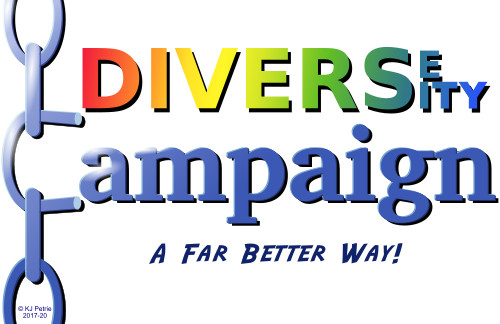Opinion
21st September 2023
The problem of polarisation
There is much heated discussion about freedom from harm, which can be redefined as freedom from inconvenient questions by its most vocal proponents, and freedom of speech which can also be interpreted as freedom to malign, insult, or frighten. At least, there is much heated posturing around these two ideas, and often clumsy attempts to enforce the first by limiting the second. The problem with heat is it leaves little room for discussion.
The unfortunate result of that is a divided society and divided societies are weakened by their lack of agreement about their purpose and direction. People become so worried about that they have less time to concentrate on genuinely making the world a better place, and such a society then cannot compete with more brutal societies attacking either economically or directly by military means. Divided societies tend not to last.
When the Internet began, its supporters saw it as a positive contribution to mutual understanding; it would enable people from all over the world to communicate and discuss the ideas which keep us apart, finding solutions and bringing mutual respect. It would contribute enormously to the cause of world peace as different people met on line and resolved their differences. Sadly, human nature doesn’t work that way.
As we now know, the “social media” platforms which have come to dominate Internet use, as a combination of the greed of large-scale capitalism and everyday laziness replaced the idealism and effort of early Internet pioneers, have emphasised the divisions between viewpoints and encouraged a beleaguered tribal mentality, where different groups shout across metaphorical barricades to which their opponents are not listening, while the more determined seek to do whatever they can to enlist politicians to champion their position and legislate their opponents out of existence.
One cannot help seeing an echo of Mussolini’s Might is Right claim in such actions. Have we really allowed our liberal society to be reduced to this?
Extremism goes nowhere, except into its own destructive obsessions. In time, the extremists will disagree about exactly which form their extremism should take, and will turn on each other over ever-more-petty disputes. We have seen it often before. We know the script. Progress can only be made by those who seek to bring the two sides together, those who seek a mixture of compromise and comprehension in order to reconcile different views, and that has always been the approach Diverse Diversity seeks, though comprehension is more helpful than compromise. Compromise merely seeks a middle way, which can sometimes be as narrow as the extremes it seeks to replace. Comprehension, on the other hand, seeks to embrace the whole breadth of ideas, bringing the extremes into contact as their views are appreciated and taken into consideration. To do that it is necessary to talk to both sides and understand their concerns.
If we go back to the opening sentence of this article we can see how Diverse Diversity fits the concerns of both sides. It seeks to minimise harm by requiring all discourse to be civil, not permitting intimidation and demanding evidence for assertions, thus making it difficult for misinformation to be used to stir up hatred. On the other hand, it also seeks to protect freedom of conscience and of civil speech by ensuring no topic is considered beyond scrutiny and discussion, and it is not permissible to claim offence in order to shut people up anymore than it is permissible to say something with the main intention of causing offence.
Those who claim they should have the right to offend are just as much the enemies of Free Speech as those who seek to silence opponents by claiming harm is done by the mere act of disagreeing. For while one side seeks to silence others by force, the other gives them a valid reason to try.

